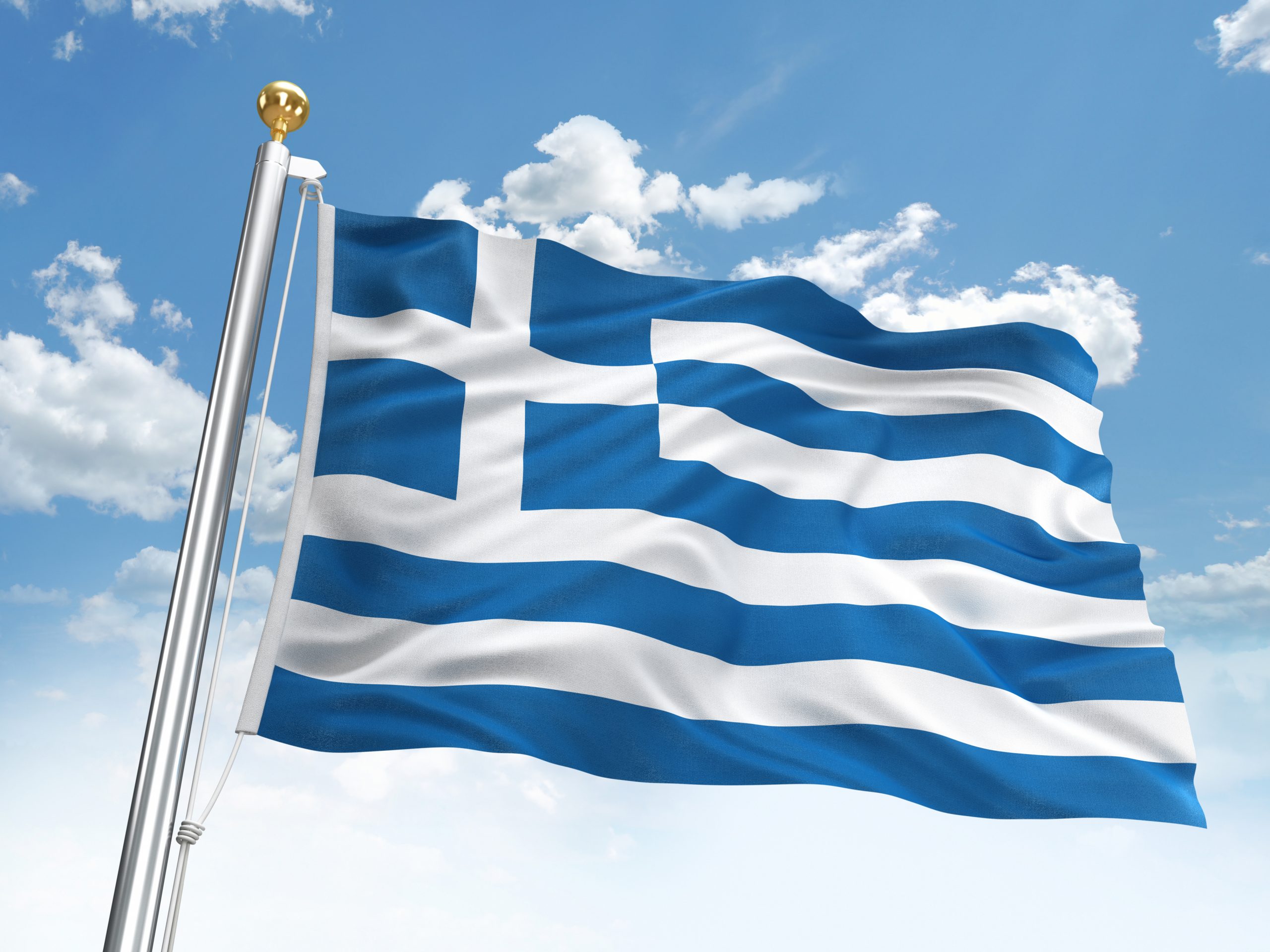Menu
Install the app
How to install the app on iOS
Follow along with the video below to see how to install our site as a web app on your home screen.
Note: This feature may not be available in some browsers.
You are using an out of date browser. It may not display this or other websites correctly.
You should upgrade or use an alternative browser.
You should upgrade or use an alternative browser.
Greek History Community
What role did Mani play in Greek independence?
- Thread starter kosta_karapinotis
- Start date
1 - 6 of 6 Posts
Here is more information about the Greek war of Independence, hope this helps and thanks for stopping by!

 www.greekboston.com
www.greekboston.com

Important facts to know about the Greek War of Independence
Learn all about some important and interesting facts about the Greek War of Independence.
k_tsoukalas
Administrator
The Greek War for Independence actually started earlier in Mani (March 17, 1821) than it did for the rest of Greece (March 25, 2021) when Mani officially declared war against the Ottoman Empire. The Ottomans constantly attacked Mani, hoping to finally gain a foothold there, but they were never able. Tired of the constant invasion attempts, Mani finally declared war. The rest of Greece followed over a week later, declaring war against the Ottomans on March 25th.
That's a beautiful story, it must be very powerful and prideful to be from this regionI think Mani declared war against the Ottoman Empire about a week or so before the rest of Greece. Mani is looked at as a catalyst for the war, their boldness in declaring war as a region inspired the rest of Greece to follow suit. Fascinating part of Greek history!
I would be interested to hear how the people of Mani see it... I agree, the story is beautiful!That's a beautiful story, it must be very powerful and prideful to be from this region
1 - 6 of 6 Posts
JOIN THE DISCUSSION AND READ OTHER GREEK INFO:
Learning about the Olympic Games
- paharo45
- Greek History Forum
- Replies: 1
It's an Olympics year so I thought I would chat a bit about the Olympic Games!
The original Olympic Games, held in Olympia, Greece, were primarily a festival celebrating Zeus, the king of the Greek gods. These games began around 776 BC and featured a range of athletic competitions, from foot races to combat sports like wrestling and boxing. Interestingly, the games were so significant that wars were put on hold, and conflicts paused to allow athletes and spectators to travel safely to Olympia. This ancient tradition of the Olympic Truce or "Ekecheiria" is a testament to the power of sport in fostering peace and unity, a principle that remains at the heart of the Olympics today.
I find it absolutely intriguing how these ancient games laid the groundwork for the modern Olympics, introducing concepts of sportsmanship, excellence, and the idea of bringing people together through the universal language of sport.
Has anyone visited ancient Olympia? Do you guys enjoy watching the Olympic Games?
The original Olympic Games, held in Olympia, Greece, were primarily a festival celebrating Zeus, the king of the Greek gods. These games began around 776 BC and featured a range of athletic competitions, from foot races to combat sports like wrestling and boxing. Interestingly, the games were so significant that wars were put on hold, and conflicts paused to allow athletes and spectators to travel safely to Olympia. This ancient tradition of the Olympic Truce or "Ekecheiria" is a testament to the power of sport in fostering peace and unity, a principle that remains at the heart of the Olympics today.
I find it absolutely intriguing how these ancient games laid the groundwork for the modern Olympics, introducing concepts of sportsmanship, excellence, and the idea of bringing people together through the universal language of sport.
Has anyone visited ancient Olympia? Do you guys enjoy watching the Olympic Games?
History of the Greek flag?
- dpappas87
- Greek History Forum
- Replies: 1
I never really stopped to think about the history of the Greek flag and I want to share that knowledge with my kids. I need to figure out what it is first. I have this feeling the history is rich because I've seen different, older versions of the flag.
Could anyone shed some light on the following aspects:
Could anyone shed some light on the following aspects:
- Origins: When was the Greek flag officially adopted, and were there any significant events that led to its creation?
- Symbolism: What do the colors and the cross represent? Are there any historical or cultural significance behind these elements?
- Evolution: Has the flag undergone any changes throughout the years? If so, what prompted these changes?
- Legends/Myths: Are there any interesting legends or anecdotes surrounding the inception or adoption of the flag?
Information About Alexander the Great
- nadellii
- Greek History Forum
- Replies: 1
I have always been fascinated by Alexander the Great. I have this sense that depending on how you look at what he did, you could see it differently.
Sure, he conquered and spread hellenism. But what about the place he conquered? How did they feel? I am guessing not very favorable towards him.
If found this documentary on YouTube created by the history channel. I thought I'd watch it. I found it interesting and wanted to share.
Sure, he conquered and spread hellenism. But what about the place he conquered? How did they feel? I am guessing not very favorable towards him.
If found this documentary on YouTube created by the history channel. I thought I'd watch it. I found it interesting and wanted to share.
Greek Independence Day History
- redsoxdw_
- Greek History Forum
- Replies: 1
Greek Independence Day is coming up! I thought I would share a bit that I know about the history. Please chime in with corrections or anything to add!
- The Spark of Revolution: Greek Independence Day marks the day in 1821 when the Greeks began their revolt against the Ottoman Empire, a state that had controlled Greece for nearly 400 years. This revolt was influenced by the surge of nationalism throughout Europe and inspired by the Enlightenment ideals of liberty, equality, and fraternity.
- A Poet’s Declaration: The revolution officially began after Bishop Germanos of Patras raised the Greek flag at the Monastery of Agia Lavra in Peloponnese, symbolizing the call to arms. However, it was rumored that the war of independence was actually declared a few days earlier by Alexandros Ypsilantis, a Greek national hero, in the Danubian Principalities.
- International Support: The Greek fight for independence was not just a local effort; it garnered substantial international support from prominent figures such as Lord Byron from Britain, who notably spent his own money and later died in Greece, contributing to the Greek cause. This international backing was crucial for the morale of the Greek fighters and helped in diplomatic efforts later on.
- The Battle of Navarino: A pivotal point in the Greek War of Independence was the Battle of Navarino in 1827, where the combined fleets of Britain, France, and Russia defeated the Ottoman and Egyptian fleets. This naval battle marked a significant turning point that led to the eventual independence of Greece.
- Recognition and Autonomy: Greek Independence was formally recognized in 1830 by the Treaty of London. However, full sovereignty and the delineation of the Greek borders were not achieved until later. It allowed the foundation of the modern Greek state, under the governance of King Otto from Bavaria.
My Top Favorite Greek Philosophers
- paharo45
- Greek History Forum
- Replies: 1
There are too many philosophers to count, but these are the ones I am studying at the moment. It's fascinating to me how influential the Greek philosophers are. Here's some things I am learning:
#1 Socrates
If philosophy had a poster boy, Socrates might very well be it. The father of Western philosophy, Socrates was a gadfly to Athenian society, questioning everything and Master to Plato. Known for the Socratic Method and his unflinching commitment to truth, Socrates' influence is immeasurable despite never having written a word.
#2 Plato
Rightly succeeding his mentor on this list, Plato's Academy saw him birth the first "university" of its kind. His unabashed idealism, immortal Forms, allegories like the Cave, and the pursuit of 'The Good' in moral philosophy set the stage for much intellectual discourse.
#3 Aristotle
Aristotle, another of Plato's students, had a more grounded approach to philosophy than his predecessor. With establishing principles of logic and reason, and contributions to virtually every field of academia, from poetry to physics, Aristotle's body of work remains foundational.
#4 Heraclitus
Heraclitus, famed for the idea that "change is the only constant," viewed the cosmos through a lens of process, flux, and an everlasting Logos that governs the world. Although little of his work survives, his influence on ancient and modern thinkers is profound.
#5 Epicurus
Known for his eponymous philosophy, Epicurus taught that the greatest good is to seek modest pleasures in order to attain a state of tranquility, freedom from fear (ataraxia), and absence of bodily pain (aponia). Often misunderstood, Epicureanism is starkly different from the modern use of 'epicurean' - it's much less about a luxury lifestyle and more about ethical considerations regarding personal fulfillment.
#1 Socrates
If philosophy had a poster boy, Socrates might very well be it. The father of Western philosophy, Socrates was a gadfly to Athenian society, questioning everything and Master to Plato. Known for the Socratic Method and his unflinching commitment to truth, Socrates' influence is immeasurable despite never having written a word.
#2 Plato
Rightly succeeding his mentor on this list, Plato's Academy saw him birth the first "university" of its kind. His unabashed idealism, immortal Forms, allegories like the Cave, and the pursuit of 'The Good' in moral philosophy set the stage for much intellectual discourse.
#3 Aristotle
Aristotle, another of Plato's students, had a more grounded approach to philosophy than his predecessor. With establishing principles of logic and reason, and contributions to virtually every field of academia, from poetry to physics, Aristotle's body of work remains foundational.
#4 Heraclitus
Heraclitus, famed for the idea that "change is the only constant," viewed the cosmos through a lens of process, flux, and an everlasting Logos that governs the world. Although little of his work survives, his influence on ancient and modern thinkers is profound.
#5 Epicurus
Known for his eponymous philosophy, Epicurus taught that the greatest good is to seek modest pleasures in order to attain a state of tranquility, freedom from fear (ataraxia), and absence of bodily pain (aponia). Often misunderstood, Epicureanism is starkly different from the modern use of 'epicurean' - it's much less about a luxury lifestyle and more about ethical considerations regarding personal fulfillment.
Share and discuss Greek history!
WorldwideGreeks.com is a free online forum community where people can discuss Greek food, travel, traditions, history and mythology.
Join Worldwide Greeks here!
Join Worldwide Greeks here!
JOIN COMMUNITY FOR FREE
LOGIN TO YOUR ACCOUNT



